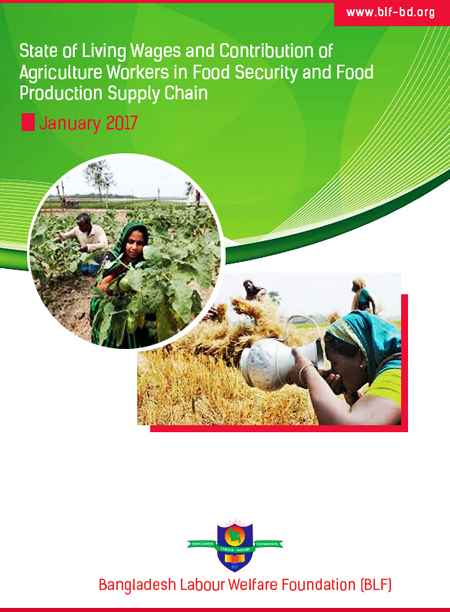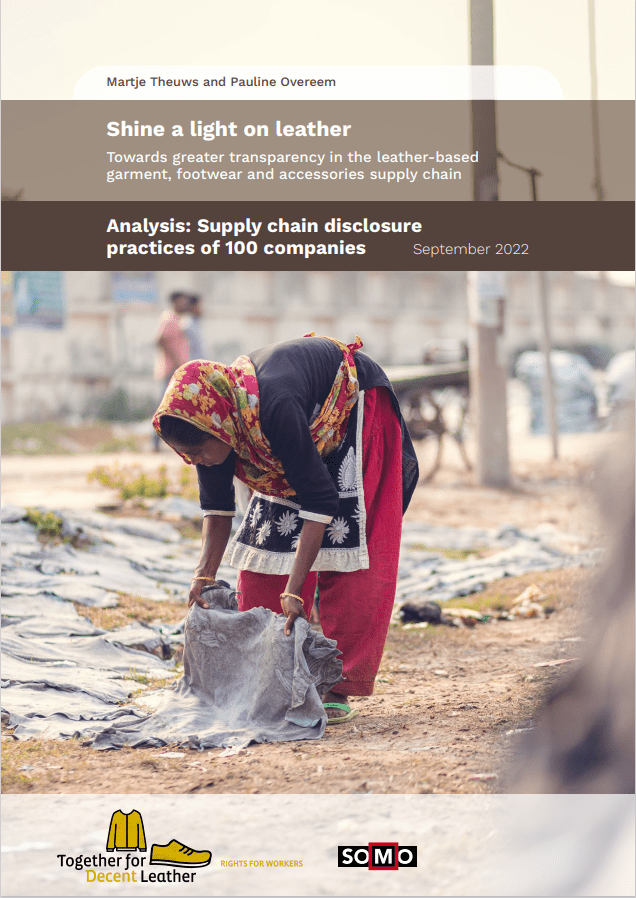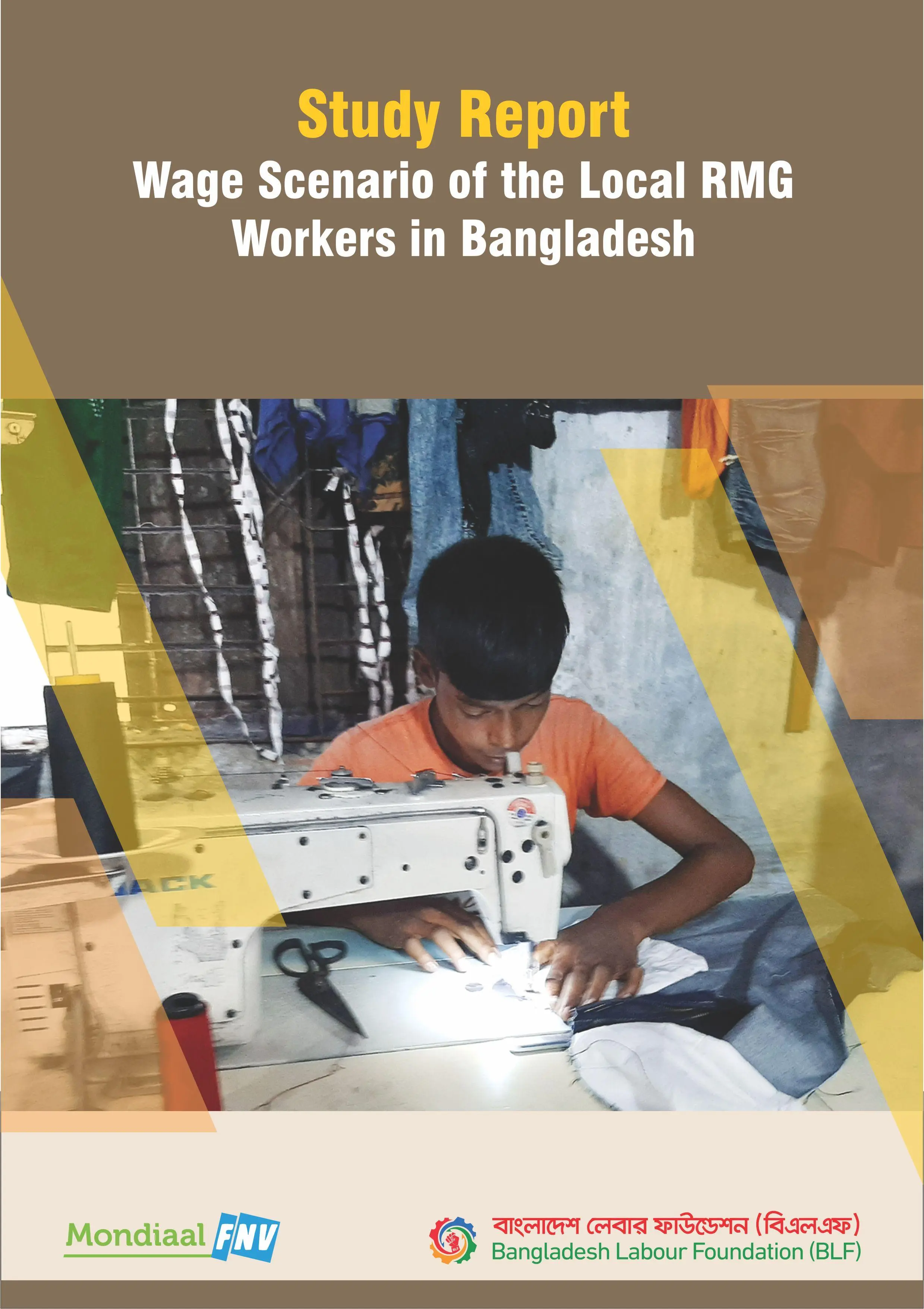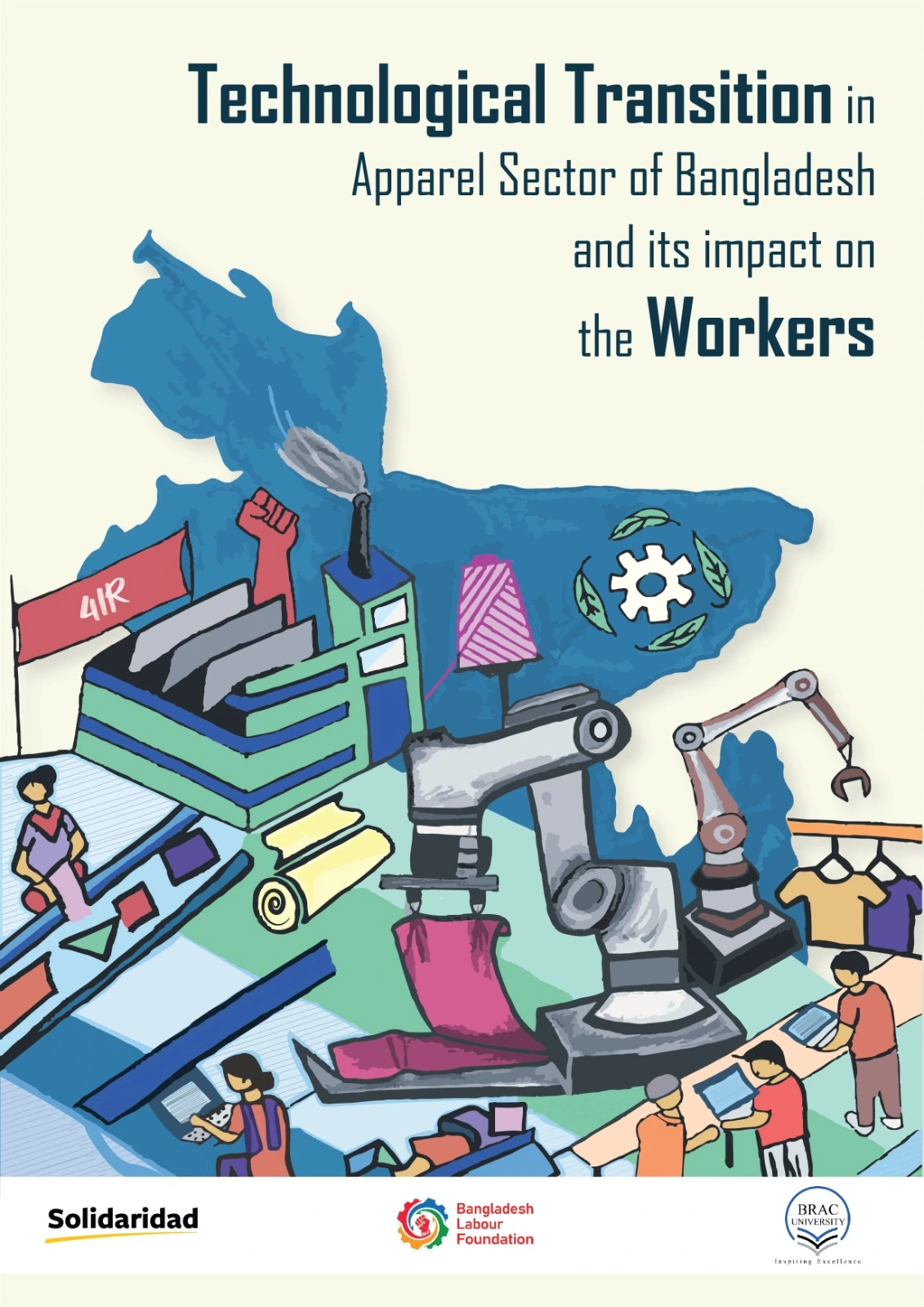This paper makes the case for improved public disclosure of disaggregated and detailed supply chain data by international buying companies with the aim of increasing respect for the labour rights of workers in international supply chains. We make proposals in the paper for data categories and elements that brands and retailers should eventually include in their facility-level disclosures. With this paper we aim to provide input into current discussions on enhanced supply chain transparency among brands, retailers, fashion conglomerates, workers and/or workers’ organizations, civil society organizations, responsible business initiatives, and governmental actors.
Research & Study
Discussion paper: Towards greater transparency in the leather-based garment, footwear and accessories supply chain
September 2022
This paper makes the case for improved public disclosure of disaggregated and detailed supply chain data by international buying companies with the aim of increasing respect for the labour rights of workers in international supply chains. We make proposals in the paper for data categories and elements that brands and retailers should eventually include in their facility-level disclosures. With this paper we aim to provide input into current discussions on enhanced supply chain transparency among brands, retailers, fashion conglomerates, workers and/or workers’ organizations, civil society organizations, responsible business initiatives, and governmental actors.
Key Words: Transparency, Footwear, Accessories, OSH
Background
The leather-based garment, footwear, and accessories industry is a complex production network. It comprises long supply chains that typically span several countries and link producers of inputs, materials, semi-finished products, and finished goods to consumers of branded products. Opacity and lack of transparency are common in this industry. Corporate actors provide very little insight into their upstream suppliers or downstream customers or into the labour conditions that workers endure. The production of leather itself and leather goods often takes place in low- and middle-income countries and gives rise to serious sustainability issues, including poverty pay, union busting, gender discrimination, occupational health and safety risks, and environmental pollution. Companies systematically neglect the rights and safety of workers. The Covid-19 crisis has made matters worse.
Objectives
- This study aim to create a more transparent, fair, and sustainable leather industry that better protects workers’ rights and adheres to international standards.
Key Findings
- The current disclosure practices are insufficient, with only a small percentage of companies providing information beyond their first-tier suppliers.
- The Fashion Revolution’s 2022 Transparency Index indicates that only 32% of companies disclose processing facilities, and a mere 12% provide information on raw material suppliers.
- This lack of comprehensive disclosure highlights the need for stronger regulatory frameworks and industry standards to compel greater transparency and accountability.
Recommendations
- Trace and map all links of the extended supply chains of your products beyond suppliers of end-products. The extended supply chain of leather-based products includes slaughterhouses, tanneries, suppliers of inputs and materials (such as chemicals, raw hides, and semi-finished hides), suppliers of semi-finished and end-products, formal subcontractors, and informally subcontracted work places and homeworkers.
- Require member companies and corporate affiliates to trace and map all links of their extended supply chains beyond end-product suppliers and to publicly disclose disaggregated and detailed supply chain data, covering the categories and elements presented in Section 3 of this paper.
- Develop, adopt, and implement robust national, European Union, and/or other regional- and international-level legislation requiring comprehensive corporate supply chain disclosure in line with Section 3 of this paper. Such legislation could be part of overarching mandatory human rights due diligence laws or stand-alone legislation.
- Create a regulatory and policy environment that enables and encourages corporate actors along the extended supply chain of leather-based products, such as slaughterhouses, tanneries, suppliers of inputs and materials (including chemicals, raw hides, and semi-finished hides), and suppliers of semi-finished and end-products, to publish comprehensive supply chain transparency data in line with international business and human rights standards and covering the categories and elements presented in Section 3 of this paper.
The leather-based garment, footwear, and accessories supply chain is highly complex, involving a great variety of producers, buyers, and intermediaries. This industry has a high level of outsourcing and subcontracting, including large numbers of informal homeworkers. This makes it very difficult to establish links between workplaces at various stages of the supply chain and the companies that sell end-products such as leather jackets, shoes, and bags. Poverty pay, hazardous working conditions, and union busting are rife in the industry. Actors along the supply chain – workers, trade unions, NGOs, companies, investors, and so on – therefore urgently need access to supply chain information through greater transparency to push for improvements in workers’ rights and to obtain redress for rights violations. When rights violations occur, workers, trade unions, and workers’ support organizations need to know which corporate actors have responsibility to address the issues. And enhanced supply chain transparency is also beneficial to companies. The availability of concrete information on unionization, wage levels, and labour rights risks at production facilities supports companies in their pre-sourcing due diligence. Information on buyer–supplier relations also facilitate cooperation between brands and retailers that source from the same production facilities.
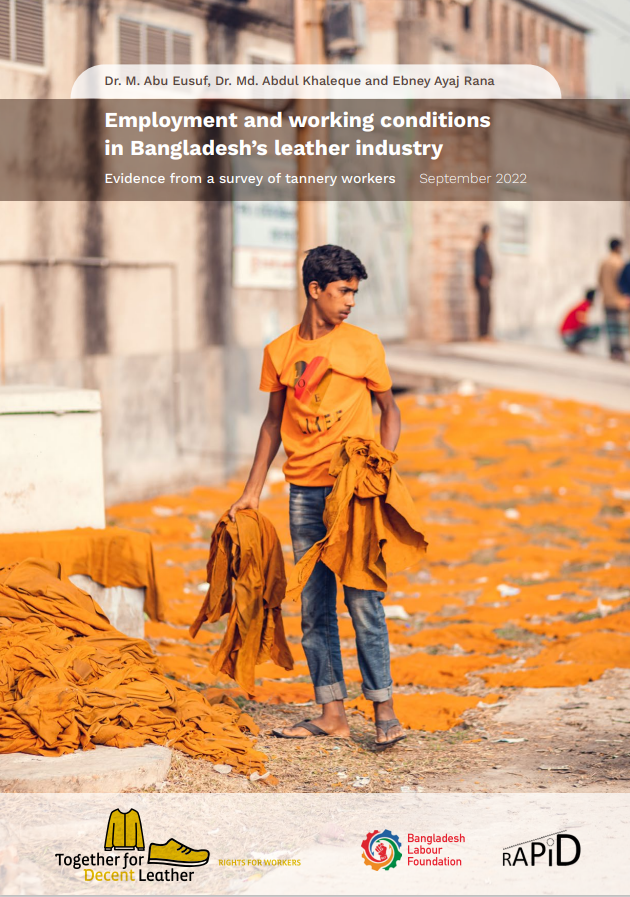
Publication Details
Date: September, 2022
Contact
Bangladesh Labour Foundation (BLF)
107 Bir Uttam C.R. Datta Road
Dhaka – 1205
Bangladesh

